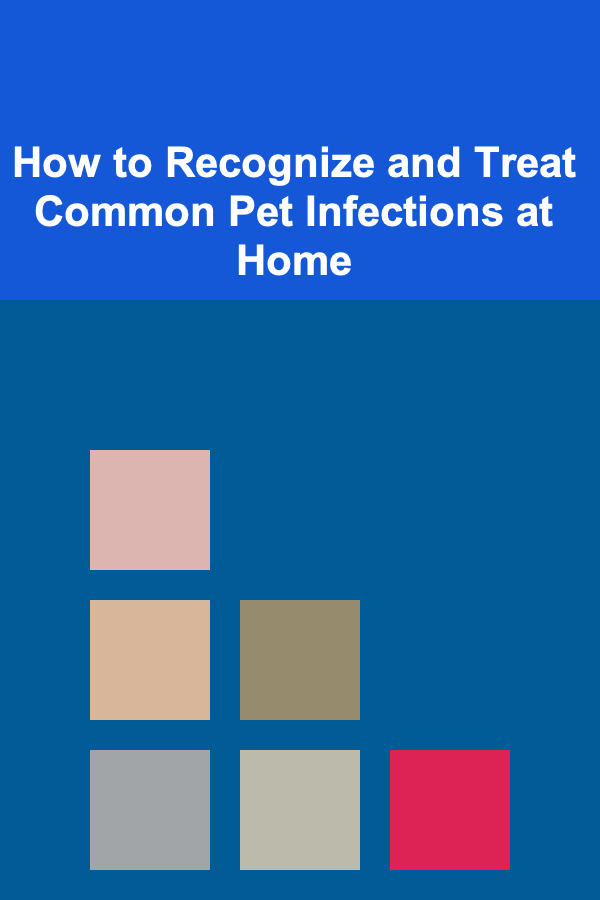
10 Tips for Building a Strong Professional Network as a PA
ebook include PDF & Audio bundle (Micro Guide)
$12.99$7.99
Limited Time Offer! Order within the next:

As a Physician Assistant (PA), building a strong professional network is an essential step to achieving success in the healthcare field. A well-established network not only helps you stay informed about the latest trends and advancements in medicine, but it also opens doors for career opportunities, professional growth, and personal fulfillment. Networking plays a crucial role in helping you build relationships with other healthcare professionals, exchange knowledge, and seek mentorship and support in times of need.
In this article, we'll explore 10 actionable tips for building and maintaining a strong professional network as a Physician Assistant. Whether you're just starting your career or have been practicing for years, these strategies will help you expand your reach, connect with like-minded individuals, and advance your career as a PA.
Leverage Professional Organizations
One of the most effective ways to build a professional network as a PA is to get involved in professional organizations. Joining associations such as the American Academy of Physician Assistants (AAPA), state PA organizations, or specialty-specific groups can provide numerous networking opportunities. These organizations often host conferences, workshops, and local meetings where you can connect with colleagues, gain valuable insights into your field, and stay updated on industry trends.
- AAPA offers national events, continuing education, and access to a broad community of PAs.
- State and Regional PA Associations often hold local networking events and support PAs in specific areas, making them excellent resources for region-specific advice and connections.
Participating in professional organizations can also provide access to a range of resources that can help you throughout your career, from job boards and mentorship programs to educational seminars.
Attend Conferences and Workshops
Conferences, workshops, and seminars are an excellent way to build relationships with other PAs, physicians, healthcare administrators, and experts in your field. Attending these events allows you to learn about the latest trends, new research, and emerging technologies while simultaneously expanding your professional network.
When you attend these events, make an effort to:
- Engage with speakers: Many conferences feature prominent figures in the field of medicine. Take the opportunity to ask questions and introduce yourself.
- Participate in breakout sessions: These smaller groups allow you to interact more intimately with colleagues and learn about their experiences.
- Attend social events: Networking opportunities often extend beyond the sessions themselves. Dinners, mixers, and receptions provide a more relaxed setting to form connections.
Follow up with the people you meet after the event by connecting on LinkedIn or emailing them to continue the conversation.
Cultivate Strong Relationships with Mentors
A mentor can play a pivotal role in your professional development. Mentors are experienced professionals who offer advice, support, and guidance to help you navigate the challenges of your career. Whether you seek mentorship in clinical practice, leadership, or career development, a mentor can provide invaluable insight that can accelerate your growth.
- Identify Potential Mentors: Look for individuals who have experience in areas you want to develop, such as leadership, specialty expertise, or practice management.
- Establish a Meaningful Relationship: Regular communication is key. Make time to meet with your mentor to discuss your goals, challenges, and any questions you may have.
- Offer Value: While mentorship is a two-way relationship, remember that you can also offer value by sharing your own experiences or assisting your mentor with tasks that align with your expertise.
Mentorship can also lead to more introductions and referrals, further expanding your network.
Utilize Social Media and Professional Platforms
In today's digital age, social media and professional networking platforms are powerful tools for building a professional network. LinkedIn, Twitter, and even Facebook groups can help you stay connected with colleagues, organizations, and thought leaders in your field.
- LinkedIn: Create a compelling LinkedIn profile that highlights your education, certifications, clinical experience, and areas of expertise. Connect with colleagues, healthcare recruiters, and potential mentors. Participate in LinkedIn discussions and share relevant content to enhance your online presence.
- Twitter: Twitter is an excellent platform for following leading professionals, participating in healthcare-related chats, and staying informed about medical breakthroughs. Join conversations, ask questions, and connect with others in your specialty.
- Facebook Groups: Many PAs and healthcare professionals use Facebook groups to share job opportunities, discuss clinical cases, and ask for advice. Look for PA-specific groups or ones related to your specialty.
Being active and visible online allows you to engage with others who share your professional interests and values.
Volunteer for Leadership Roles
Taking on leadership roles within your workplace or professional organizations can help you expand your network and develop valuable skills. Volunteering for committees, task forces, or event planning teams gives you the opportunity to work closely with other healthcare professionals while also showcasing your leadership potential.
- Volunteer Within Your Organization: Whether it's organizing staff events or joining a quality improvement committee, volunteering within your workplace allows you to connect with colleagues and build credibility.
- Take On Leadership Roles in Professional Organizations: Running for office in your state or national PA organizations or leading a committee can enhance your professional reputation and broaden your network.
Volunteering not only strengthens your relationships but also highlights your commitment to advancing your profession.
Make the Most of Your Clinical Rotations
For newly graduated PAs or students currently in training, clinical rotations provide an excellent opportunity to meet professionals in the field. This is your chance to work alongside experienced PAs, physicians, and other healthcare providers while learning the ropes of patient care.
- Build Rapport with Your Preceptors: Your preceptors (the healthcare professionals who guide you during rotations) are an invaluable resource. Build relationships with them, ask questions, and demonstrate your eagerness to learn.
- Network with Other Medical Professionals: Use rotations to connect with nurses, physicians, other PAs, and healthcare staff. These connections can open doors for future job opportunities and collaborations.
Your clinical rotations are not only an opportunity to refine your skills but also a chance to create lasting professional relationships.
Participate in Online Forums and Communities
There are numerous online forums and communities where PAs and other healthcare professionals share their experiences, exchange knowledge, and support each other. These platforms can provide a wealth of information and help you connect with others across the globe.
- PA-Specific Forums: Many PA-specific websites and online communities exist where PAs can ask for advice, share success stories, or seek support.
- Specialty-Focused Communities: If you work in a specialized field (such as cardiology, orthopedics, or pediatrics), look for online communities where practitioners in your area of expertise can connect and exchange ideas.
Being active in these communities fosters ongoing learning and collaboration while expanding your professional network.
Build Relationships with Healthcare Recruiters
Healthcare recruiters are often your gateway to job opportunities in the PA field. They have extensive networks and connections with hospitals, clinics, and private practices looking for qualified candidates. By cultivating a relationship with recruiters, you can learn about new job openings and receive advice on advancing your career.
- Connect with Recruiters: Reach out to recruiters who specialize in placing PAs. Introduce yourself, share your career goals, and ask about the current job market for PAs.
- Stay Engaged: Keep in touch with recruiters regularly. If you're actively seeking a new position, let them know your preferences and what kind of opportunities you're looking for.
Recruiters can be an excellent resource for networking and career development, helping you navigate your job search and professional growth.
Attend Local Networking Events
Networking doesn't always have to be a large-scale conference or national event. Local networking events, such as meetups, coffee chats, or small group gatherings, offer an intimate setting to meet other healthcare professionals in your area.
- Join Local Meetups: Look for healthcare-related networking groups or professional meetups in your city. These gatherings allow you to network in a more personal and approachable setting.
- Participate in Community Events: Attend health fairs, wellness events, or charity functions where you can meet other medical professionals and community leaders.
Local events can provide you with the opportunity to connect with people who share your professional interests and goals on a smaller scale.
Maintain Your Connections
Building a professional network is not just about meeting new people; it's also about nurturing and maintaining the relationships you've established. Regular communication and follow-up are key to keeping your network strong.
- Reach Out Periodically: Check in with your contacts periodically, whether it's through a quick email, a LinkedIn message, or an invitation for coffee. Showing that you're invested in the relationship will keep you on their radar.
- Offer Help and Support: Networking is a two-way street. Be open to offering advice, referrals, or assistance when someone in your network reaches out. Providing value will strengthen your connections and foster goodwill.
The effort you put into maintaining your professional relationships will pay off when you need guidance, support, or new opportunities in the future.
Conclusion
Building a strong professional network as a PA is crucial for your career success, personal growth, and professional development. By leveraging professional organizations, attending events, cultivating relationships with mentors, utilizing digital platforms, and engaging in local networking opportunities, you can create a robust network that supports your goals and enhances your career.
Remember that networking is not just about collecting contacts; it's about creating meaningful, long-term relationships that benefit both you and others. By staying proactive, consistent, and open to collaboration, you'll build a network that helps you thrive in the dynamic world of healthcare.
Reading More From Our Other Websites
- [Star Gazing Tip 101] Star-Gazing Essentials: Gear, Apps, and Tips for Clear Skies
- [Organization Tip 101] How to Create a Personalized Cleaning Supplies Caddy
- [Home Soundproofing 101] How to Manage Indoor Noise Pollution with Home Soundproofing
- [Home Lighting 101] How to Use Lighting to Improve Your Home's Feng Shui
- [Organization Tip 101] How to Plan a Home Renovation Project: Step-by-Step Guide
- [Personal Care Tips 101] How to Build a Sustainable Self-Care for Mental Health Practice That Works for You
- [Biking 101] Top 5 Bike Tools for Easy On-the-Go Repairs
- [Small Business 101] How an E-commerce Platform for Small Business Can Boost Your Online Sales
- [Simple Life Tip 101] Best Strategies for Reducing Screen Time While Staying Connected
- [Organization Tip 101] How to Safely Strip Paint and Varnish from Your Furniture

How to Recognize and Treat Common Pet Infections at Home
Read More
How to Start a Passive Income Business with Deep Learning
Read More
Navigating Family Mental Health Challenges: A Comprehensive Guide
Read More
How to Geocache Responsibly: Leave No Trace Practices
Read More
10 Tips for Eco-Friendly Greeting Card Production
Read More
10 Tips for Designing Backflow Prevention Assemblies
Read MoreOther Products

How to Recognize and Treat Common Pet Infections at Home
Read More
How to Start a Passive Income Business with Deep Learning
Read More
Navigating Family Mental Health Challenges: A Comprehensive Guide
Read More
How to Geocache Responsibly: Leave No Trace Practices
Read More
10 Tips for Eco-Friendly Greeting Card Production
Read More